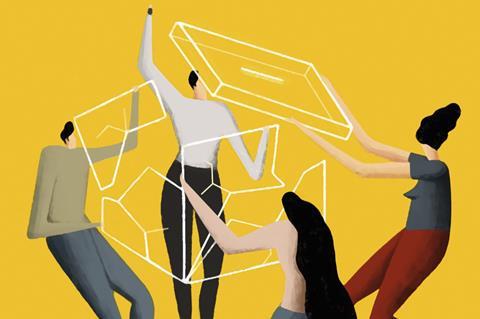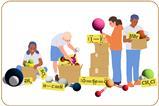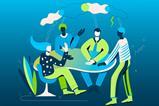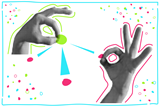Embed these teaching tips into your practice to involve students with the process of acquiring knowledge

Learning how to learn is a vital outcome of education that facilitates lifelong skills development. To achieve it students must engage with the learning process.
Self-regulated learning (SRL) is a framework that encompasses the process of engaging with learning. SRL refers to an individual’s cycle of thinking, feeling and action used to attain goals. SRL has three phases: forethought, where learners determine goals and plan strategies; performance, where students employ strategies and make changes; and self-reflection, where the learner judges the process and sets future goals.
In a recent study, a pair of researchers investigated the effect of self-regulatory instruction based on guided inquiry (SRI-GI). They monitored students’ learning strategies and how these changed over time with SRI-GI.
Research method
The study compared two methods to teach solubility equilibria and acids and bases to 16-year-old students at a Turkish high school. The 40 students in the control group received traditional lectures, completed algorithmic questions on the material and followed structured practical activities. The experimental group of 38 students received SRI-GI. This group completed eight laboratory tasks in groups of four, guided by journals that took them through the three stages of SRL. Group members had specific roles: the supervisor led discussions; two technicians set up experiments; and the reporter logged decisions and observations. Students switched roles for different experiments, and had ample opportunity for discussion during all tasks.
The researchers collected quantitative data before and after the intervention using a test and a cognitive and metacognitive strategies scale (CMSS). They also gathered qualitative insights into the SRL process students used at different stages.
The research team also selected four students with a range of achievement levels from each of the experimental and control groups. The researchers developed think-aloud protocols to probe these students’ thought processes as they answered questions based on real world scenarios. The questions prompted students to decide how they would solve problems before evaluating the effectiveness of their strategies and changing them if required. Additionally, the researchers analysed the experimental-group students’ journals.
Results
The quantitative data did not show any significant difference between the experimental and control groups. Other studies have observed similar, perhaps because students tend to overestimate their SRL capabilities when responding to the questions in the CMSS.
However, the qualitative data was more encouraging. Students of all abilities in the experimental group used diverse cognitive and metacognitive strategies during their second unit. Conversely, the control group changed their strategies little over time. Furthermore, students in the experimental group tended to give more correct responses and more complete scientific explanations.
Teaching tips
Numerous features of the studied intervention could be applied to existing practice. They would be most straightforward to apply to practical work and most appropriate for activities with an element of inquiry, rather than traditional recipe-based practicals.
- If running practical tasks in groups of four is not feasible, two pairs of students could come together to discuss the purpose and goals of a practical task in the forethought phase before separating to complete the activity. They should focus on questioning each other about planned strategies and their rationale.
- Encourage pairs to discuss issues they encounter with other pairs as they work through tasks. This helps them to identify and evaluate possible changes to their strategies.
- Ask students to reflect on their task with peers before completing reflective tasks as homework. Homework should prompt students to identify what worked well and what did not to inform their approach to future tasks.
- To speed up the embedding of SRL phases into routines, apply these recommendations to non-practical group tasks. SRL is applicable wherever students have autonomy over their activity and the opportunity to discuss their thinking with peers.
References
C Kadioglu-Akbulut and E Uzuntiryaki-Kondakci, Chem. Educ. Res. Pract., 2020, DOI: 10.1039/c9rp00297a














No comments yet